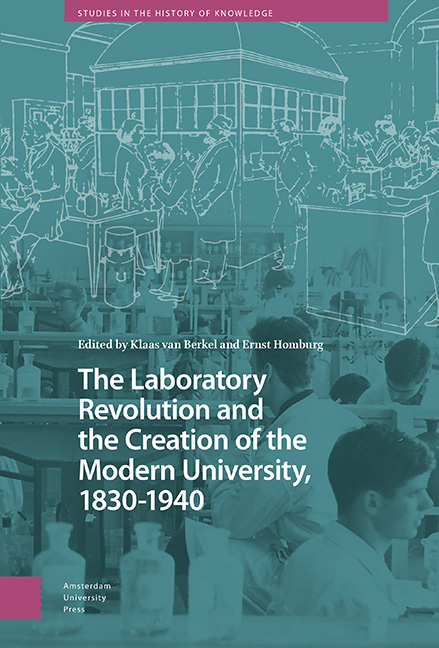7 - Fighting for Modern Teaching and Research Laboratories in Norway : The Chemistry Laboratory in Political Dispute around 1920
Published online by Cambridge University Press: 29 November 2023
Summary
Abstract
Expectations were high when the Norwegian Institute of Technology (NTH) was established in Trondheim in 1910. Large sums were invested in laboratory facilities, which were considered important in training industrial chemists, i.e. chemical engineers. When the laboratory facilities turned out to be too small a decade later and thus inadequate to serve their purpose, their legitimacy became part of a political dispute between representatives from the institute in Trondheim and the Royal Frederick University in Kristiania, which were also in need of new laboratory facilities. At stake were the roles ascribed to the different institutions that educated (industrial) chemists or chemical engineers in the country, and thereby the allocation of resources for modern laboratory facilities.
Keywords: teaching laboratories, higher chemistry education, industry, political dispute, national identity
Introduction
… a completely modern and well-equipped chemical laboratory so that from now on in Norway, it will be possible to participate in great international work on how to utilize the chemical sciences in the interest of the chemical industry.
When the Norwegian Institute of Technology was inaugurated in 1910 as the first technical institute in the country, it was celebrated as an academic institution that trained elite engineers who could establish new industry and thereby build the new, independent Norway. A lot was at stake to make the country self-supporting and economically viable after it gained its independence in 1905. Thus, great hope and optimism for the future surrounded the establishment of the institute. The institute was perceived as the cathedral of technology—symbolized by the building’s spires and cathedral-like hall, and its location vis-à-vis the Nidaros Cathedral. The new buildings and laboratories offered the latest technologies, including electricity, which added to the institute being seen as a centre for technology in Norway.
Indeed, laboratories are an important part of chemistry practices and culture. As Peter Morris has argued, laboratories ‘are where chemistry is carried out—from the freshman’s first inorganic analysis to the most complex of organic syntheses’. The laboratory is the place where chemistry makes progress, and at the same time an improved laboratory can enable chemistry to move forward.
- Type
- Chapter
- Information
- Publisher: Amsterdam University PressPrint publication year: 2023



